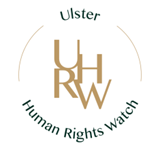A clumsy attempt at a cover-up is how Ulster Human Rights Watch is describing Irish Government documents relating to the massacre of soldiers at Narrow Water forty-two years ago.
Official papers released to National Archives Ireland challenge and deny that the detonation point for the bomb(s) was across the border in County Louth. The documents from the Department of the Taoiseach are contradicted by follow-up actions by the Gardai who discovered the detonation point in the Cooley Peninsula.
UHRW says four official documents strongly suggest a co-ordinated Irish Government attempt at disinformation.
UHRW Advocacy Support Officer, Jonathan Larner, said: “The official line from Dublin, that persisted with the lie that the Republic of Ireland had not been used in this horrific ambush, is staggering. It’s time Dublin came clean and told the relatives of the murdered and injured soldiers the full extent of what happened.
“We would ask Taoiseach Micheál Martin, to explain this official position of the Government. To all intents and purposes, this was a clumsy attempt at a cover-up to conceal the fact that Republic of Ireland territory was used to carry out the atrocity.
“The suggestion that Gardaí failed to properly investigate the Narrow Water detonation site, and secure its integrity for RUC investigators, is central to the allegations of collusion with the Provisional IRA.
“Now, it turns out that, while Gardaí had supposedly investigated the site and gathered evidence against suspects, the Irish Government was forwarding a co-ordinated line of disinformation, to assert that the detonation site was not in their jurisdiction.
“If Taoiseach Micheál Martin is serious about a ‘Shared Island’, and engagement with unionists, then perhaps he can start by addressing precisely what the Minister for Justice and Department of the Taoiseach were doing.’
UHRW has written to the Taoiseach in the search for answers.
It asks why the then Taoiseach, Jack Lynch, was advised to challenge the plausibility of the detonation site and why his Justice Minister, Gerry Collins, publicly denied any State responsibility when Gardai were already investigating the crime.
Mr Larner continued: “Were officials deliberately setting out to cover the State’s embarrassment for allowing its territory to be used by republican terrorists and did the Gardaí inform the Government of the facts?”
UHRW represents the brother of one of the murdered soldiers who wishes to remain anonymous.
He said: “These documents betray a blatant dishonesty on the part of the Irish Government. Officials advised their Ministers, but why did these same senior politicians not believe An Garda Síochána?
“The firing point was never in doubt, yet it didn’t prevent officials from mounting a crude effort to falsify and mislead. Were officials told to do this and, if so, who gave that instruction? I would like the Taoiseach to shed light on this and work to expose a troubling part of the Republic of Ireland’s role in a vile terrorist campaign.”
Documents:
- Document summing up the challenges facing the Irish government in the wake of the killing of Lord Mountbatten and eighteen British soldiers:
It has not been lost on the British and other media that both outrages took place in close proximity to the border, one on our soil, the other with allegations of involvement (however dubious) from the southern side of the border.
(NAI 2009/135/754: 29 August – 03 September 1979; p.2, para.1)
https://cain.ulster.ac.uk/nai/1979/nai_TSCH-2009-135-754_1979-08-29a.pdf
- Statement by the Minister for Justice, Gerry Collins TD, in response to comments by John Taylor MEP:
He tries to convey the impression that the tragic deaths of 20 British soldiers were the result of activity directed from here. Mr. Taylor has no evidence to support this. The explosions occurred in Northern Ireland and any attempt to imply that the crime was committed by people from the South is reckless speculation.
(NAI 2009/135/704: 31 August 1979; p.2, para.1)
https://cain.ulster.ac.uk/nai/1979/nai_TSCH-2009-135-704_1979-08-31a.pdf
- Meeting with British Prime Minister, London, 5th September 1979, Summary Notes:
There is no evidence, so far, any shooting at Warrenpoint, came from the Irish side of the border. There is no evidence to the effect that the detonation was effected from this side of the border.
(NAI 2009/135/704: 03 September 1979; p.7, para.5)
https://cain.ulster.ac.uk/nai/1979/nai_TSCH-2009-135-704_1979-09-03.pdf
- ‘Panorama Programme’, Briefing document prepared for J. Lynch, then Taoiseach, in the wake of the killing of Lord Mountbatten and 18 British soldiers near Warrenpoint, County Down:
He might reiterate readiness to take every action open to us, refer to charging of two men for Lord Mountbatten’s murder and to lack of evidence, as yet, of southern involvement in Warrenpoint attack, despite so many unqualified statements that it was mounted from South of the Border.
(NAI 2009/135/701: 10-11 September 1979; p.3, para.2)
https://cain.ulster.ac.uk/nai/1979/nai_TSCH-2009-135-701_1979-nd_a.pdf
